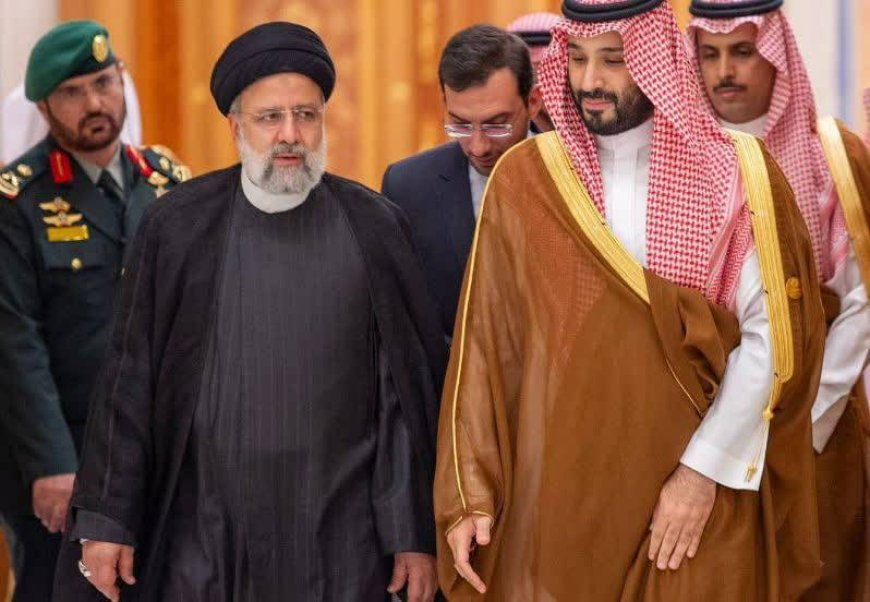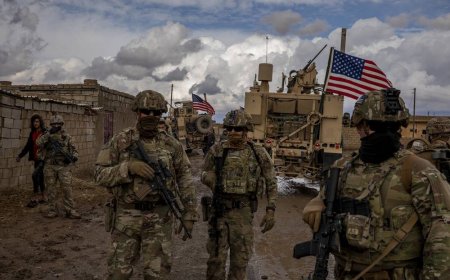From Confrontation to Reconciliation: Saudi Arabia's Shifting Stance Toward Iran and the US

By: A. Yeganeh
In the complex geopolitical landscape of the Middle East, Saudi Arabia stands as a key player, steadfastly dedicated to fostering its political agendas over the course of recent decades. Through strategic alliances and substantial investments, particularly in fostering closer ties with the United States, the oil-rich Kingdom has made significant strides in safeguarding its interests. Recent years have witnessed Saudi Arabia engaging in high-stakes negotiations with Western powers, exemplified by the Abraham Accords inked during the tenure of former US President Donald Trump. This infamous agreement allegedly aimed to establish a dubious peace in the region, but in reality, it was aimed at securing recognition for the Israeli regime within the Arab world.
Through this op-ed, I shall endeavor to dissect the nuances of these negotiations, shedding light on the concessions sought by Saudi Arabia and, in particular, its super-ambitious Crown Prince.
Against the backdrop of escalating tensions in occupied Palestinian territories and the reverberations of Operation Al-Aqsa Storm, coupled with the successive military setbacks faced by the Israeli regime, the West is now actively pursuing comprehensive security arrangements with Saudi Arabia. Concurrently, Riyadh is driven by imperatives that necessitate the imprimatur of the United States to realize its strategic objectives.
Historically, Saudi Arabia has adopted a confrontational posture vis-à-vis Tehran, engendering a protracted cycle of financial and psychological depletion for both Muslim nations. This trajectory has prompted introspection within Saudi Arabia's domestic political milieu, catalyzing a quest for fundamental policy realignments. The nascent peace overtures towards Iran, a longstanding adversary and focal point of Saudi foreign policy antagonism, signify a seismic shift in regional dynamics. For Saudi Arabia, reconciliation with Iran not only bolsters the security of the resistance axis but also mitigates the vulnerabilities exposed by Yemeni incursions, sparing the Saudi monarchy from further encroachments.
This recalibration in regional dynamics underscores a pragmatic acknowledgement within Saudi circles that the pursuit of hostilities with Iran jeopardizes Crown Prince Mohammed bin Salman's (also known by his initials, MBS) vision for the Arab Kingdom's future. Central to Saudi Arabia's strategic calculus is the imperative to extricate itself from the quagmire of regional strife and pivot towards a posture of amity and stability. The envisioned security compact with the United States mirrors this overarching objective, aiming to supplant a legacy of regional destabilization with a paradigm of peace and cooperation with Tehran.
The quest for comprehensive security underpins the aspirations of MBS, which envisions a future where Saudi Arabia stands impervious to external threats. This vision, predicated on a narrative of national invincibility and regal authority, serves as a linchpin for legitimizing the Crown Prince's prospective leadership. To materialize this grand vision, Saudi Arabia must shore up its military defenses and entrench the monarch as an emblem of strength and sovereignty. Hence, the imperative of procuring security guarantees from the United States, given the systemic vulnerabilities stemming from decades of Western entanglements, could potentially pave the way for subversion.
The symbiotic nature of the Saudi-US security entente is underscored by mutual interests, wherein Riyadh seeks to address its security lacunae while Washington leverages this partnership to advance the imperatives of its strategic allies, notably the Israeli regime. Shielding Saudi Arabia from the perils of dual-front conflicts, as witnessed in recent months, underscores the exigency of navigating the shifting tides of global power dynamics. The evolving international order, marked by geopolitical flux post-World War II, necessitates astute diplomatic maneuvering to avert undue harm.
Saudi Arabia's calibrated stance towards both the Eastern and Western axes reflects a strategic calculus aimed at minimizing vulnerabilities amid the tumult of global realignments. While this policy stance may currently appear advantageous to stakeholders on both fronts, the crucible of conflict could well test the resilience of Saudi Arabia's mercantile approach. However, as the specter of a two-front war looms large, Riyadh's dalliance with disparate power blocs may prove untenable, inviting retribution from entrenched adversaries.
In summation, the ongoing negotiations between Saudi Arabia and the United States bear tectonic changes for the security architecture of the Middle East. As Riyadh endeavors to secure a new security compact to safeguard the future trajectory of its governance under MBS, the exigencies of regional peace and stability loom large. The looming prospect of acceding to Western demands for rapprochement with the Israeli regime and endorsing a two-state solution in occupied territories underscores the intricate tightrope that Saudi Arabia must navigate in the pursuit of its strategic imperatives.













































